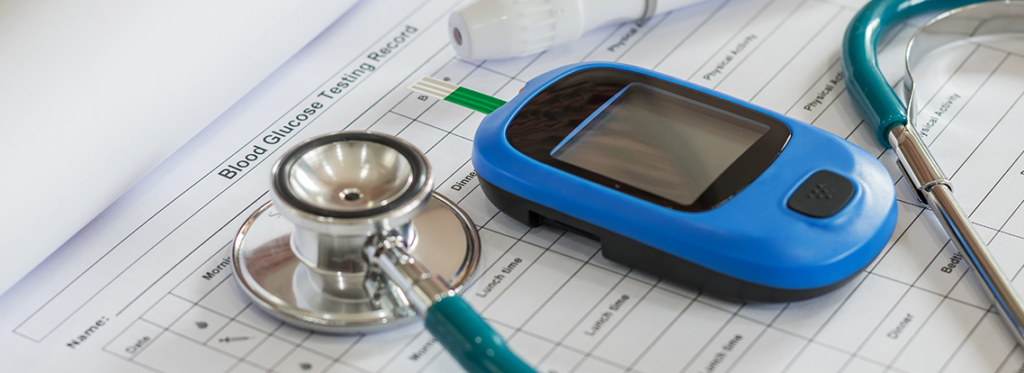
Learn the latest on type 1 diabetes research updates
| Our research roundup brings you the most exciting type 1 diabetes (T1D) research stories globally, including new clinical trials, treatment advances and research projects that are making the biggest impact in curing and preventing T1D, while improving lives today. Here’s what you need to know in T1D research for the summer: |
American Diabetes Association Annual Meeting
| Between June 25 – 29, the American Diabetes Association (ADA) held its annual meeting. Due to the pandemic, it was a virtual meeting, but still brought together researchers and clinicians from around the globe to share their research, clinical trial results and the latest innovations in diabetes technology. Of note was an update from ViaCyte Inc., a clinical-stage regenerative medicine company focused on developing cell therapies towards a functional cure for patients with insulin-requiring diabetes. They announced compelling preliminary clinical data from their stem cell-derived islet cell replacement therapy, PEC-Direct, for T1D. The results show that PEC-Direct lowers HbA1c, increases time in range, and results in production of C-peptide (a biomarker of insulin production by functional beta cells). These data represent the first time that of implanted pancreatic progenitor cells have been proven to produce C-peptide at clinically relevant levels in a participant in a clinical trial. Further results of the study are expected next year. Read more here. Other JDRF-funded researchers presented cutting-edge data on targeting the immune system to treat T1D, approaches to screening for T1D risk, next-generation closed-loop systems, telehealth to improve T1D outcomes, and glucose-responsive or smart insulins, which are designed to “switch on” only when needed to lower blood sugar, and “switch off” when blood sugars are in the normal range. |

Update on Zucara Therapeutics’ hypoglycemia prevention drug
| Hypoglycemia is a frequent, unintended consequence of insulin therapy for people with T1D and other types of insulin-dependent diabetes. Hypoglycemia is associated with significant morbidity and mortality, yet there are currently no available therapeutics to prevent the condition. Canadian company Zucara Therapeutics is working on the answer. It is developing a once-daily therapy, called ZT-01, which restores a person with T1D’s natural glucagon response so that they can counter-regulate hypoglycemia – and thus prevents serious lows from happening. Previously, JDRF provided funding to move Zucara beyond the “valley of death”— the phase when discovery research is translated into a therapy or technology but lacks the funding to make it real. Then, in April 2020, Zucara secured the backing of a large venture capital fund to move ZT-01 into clinical trials. Now the company is moving on to a Phase 1b study that will test the effect of ZT-01 effect on glucagon levels during hypoglycemia in people with T1D. In November 2020, Zucara also announced new funding to broaden development of ZT-01 for hypoglycemia prevention in people with insulin-requiring type 2 diabetes, indicating that even more people stand to benefit from the new drug. Read more here. |
Teplizumab was not approved by the US FDA….yet
A JDRF-funded clinical trial recently showed that an immune therapy drug called teplizumab delayed T1D onset in people at high risk by an average of 3 years. The drug, now being developed by Provention Bio, was recently submitted to the US Food and Drug Administration (FDA) – the first disease-modifying drug ever submitted for approval to the regulator. On May 27, 2021, an advisory committee to the FDA recommended that teplizumab be approved for prevention of T1D.
However, on July 2, the FDA issued a Complete Response Letter to Provention Bio, meaning teplizumab has not been approved for use in delaying clinical T1D in at-risk individuals at this time. However, this was expected, as Provention Bio previously reported that FDA raised questions about the comparability between the commercial product and the drug used in the clinical trial. Importantly, the Complete Response Letter “did not cite any clinical deficiencies related to the efficacy and safety data packages submitted.”
JDRF is thankful for the FDA’s consideration and review of this drug and looks forward to Provention Bio addressing the outstanding issues and working with the FDA to bring this therapy to market safely.
Read Provention Bio’s press release here.
Artificial Intelligence Identifies T1D Risk Factors in Children
A collaboration between JDRF and IBM has resulted in a publication that adds new information about T1D risk in children. In the Type 1 Data Intelligence (T1DI) Study — the largest one of its kind for predictors of childhood T1 – combined data from 5 studies in 4 countries and applied artificial intelligence to reveal new insights. The results indicate that children with multiple autoantibodies (markers of T1D autoimmunity) have a 90% chance of developing T1D within 15 years, whereas children who test positive consistently for a single autoantibody have only a 30% chance.
These results not only pave the way for better understanding of risk factors for T1D, and will help to develop guidelines for routine screening, monitoring, and management of at-risk children in different health care settings.

New Brain Canada and JDRF grant announced for mental health research
| On June 29, Brain Canada and JDRF officially launched the JDRF Canada – Brain Canada Addressing Mental Health in Type 1 Diabetes Team Grants, a program to support research on the development, validation, or implementation of interventions that address mental health concerns in people with type 1 diabetes. This new funding opportunity is open to research teams of two or more independent investigators from different institutions, or distinct departments within the same institution. For more information on this collaboration and how it aims to help improve mental health outcomes in people with T1D, please read here. |
JDRF-funded research is leveraged to develop virtual peer support platform for youth with T1D
With the support of a JDRF grant, Dr. Tricia Tang is developing an innovative digital platform called REACHOUT that connects peer-led mental health support for adults living with T1D in the BC interior. The platform has the potential to fill a major void for many people with T1D who experience diabetes distress, particularly for those in rural and remote areas where supports are limited.
With newly awarded funding through a BC Children’s Digital Health Research Award, Dr. Tang will adapt the platform for youth with T1D, and build REACHOUT NexGEN.
The ultimate goal is to translate the REACHOUT platform to deliver peer-led mental health support to kids and adolescents with T1D, as well as their parents, to reduce distress and improve quality of life and health outcomes.
| We will keep you apprised of these trial results and what it will mean for potentially bringing the product from the lab to the market, as well as provide updates on these research advances and what it could potentially mean for our Canadian type 1 diabetes community. |



